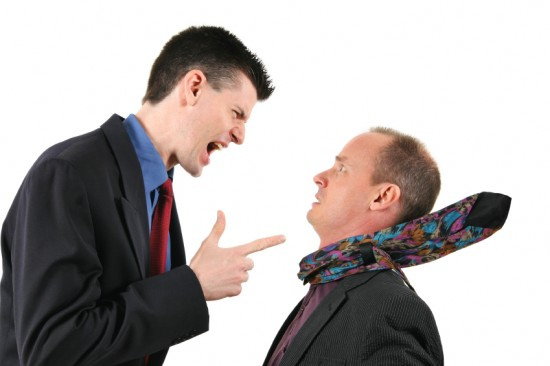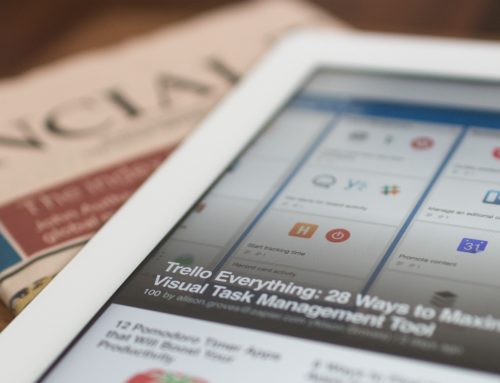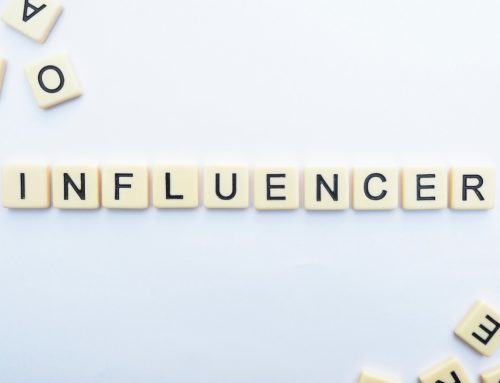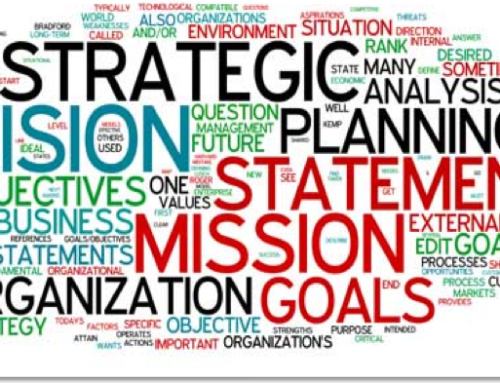 The other day I had to run down to my local UPS store to send a fax (I typically use an e-fax service when faxing is required, but these particular documents were too large for me to scan at home).
The other day I had to run down to my local UPS store to send a fax (I typically use an e-fax service when faxing is required, but these particular documents were too large for me to scan at home).
There were a few people in line ahead of me. As I waited the store owner (franchisee? I don’t know, but you get my drift) smiled and said, “Hello,” to which I responded in kind.
He’s a short, stocky gentleman of Pakistani origin, and has seen me a few times, particularly as my citizenship was being processed.
The gentleman at the counter was sending a one-page fax. A young African-American dude, he oozed Rasta (dreadlocks) mixed with self-awareness (glasses and physically trim and fit).
There is a reason I’m telling you the ethnicities involved. Read on …
All was fine until, once his fax went through, the customer pulled out a $100 bill to pay .. his $1.25 bill.
At this, the owner was taken aback. He started worrying about having enough change for the customer. And then he said, “You should have known better.”
Boy, did the atmosphere change in what was, just a few minutes prior, a calm and collected environment.
The customer took umbrage. The owner took umbrage to the customer taking umbrage. The rest of us didn’t want to look at either of them, even though the customer kept looking at the rest of us for support (and didn’t get it).
It got to the point where the customer started shouting – “That wasn’t very polite! You didn’t have to say that!” – and the owner started raising his voice as well.
Each was stuck on the point they were trying to make – “You didn’t have to say that!” “You should have had change!” – until the owner, who had been fumbling with his till drawer, managed to pull out change for the $100 bill and handed it over.
The customer left the store, still yelling, and could be heard continuing to rant well into the parking lot.
Once he left, the atmosphere in the store de-escalated relatively quickly. And then the rest of us went about our business.
This kind of scene is probably played out every day, in many stores and businesses. And the person on either end of the exchange probably thinks they’re right.
Personally, I think both had valid points, and both were at fault.
In my opinion …
The customer should not have tried to pay for a $1.25 fax with a $100 bill. That’s just silly, especially when you think of the fact that in that same shopping center, there is a Starbucks, a grocery store, a Subway and a bank that could have changed that large bill.
If I know I’m going to conduct a small transaction such as this one, I make sure I have change, or at least smaller bills … say $10 or $20 notes on hand.
The store owner should not have told the customer, “You should know better.” Regardless of the validity of that statement, it’s bound to get the recipient’s back up, because it’s an implied criticism of that person’s intellect/judgement.
And regardless of whether one is a long-time or one-time customer, should those servicing them really do that?
What I left thinking about, though, was this:
If the customer had looked different, and if the store owner had looked different, would the situation have been any different?
If the customer had been, say, a 60-ish white woman with obvious arthritis, would the store owner have said, “You should have known better” to her?
If the owner had been, say, a tall strapping Hispanic male in his 30s, would the customer have reacted any differently?
Much as we say we should treat everyone the same – and I do believe we should – I don’t think we do.
How they react to us makes a difference. How much effort they put into their communications with us makes a difference. And, yes, how they look makes a difference. Being a woman of color myself I’ve experienced this several times, and I imagine you may have as well.
Of course no one should be taken only at face – or skin – value. But it’s tough to get away from when it’s the first thing you see.
And one of our biggest challenges – and obligations, not just as people, but as business communicators, is in delving deeper, so that we go beyond mere face value and get to the root of what it is we need to help our clients and organizations communicate.
They say we shouldn’t judge a book by its cover. But the reality is that we do. And I wonder if that will ever change.
Image: o5com via Flickr, CC 2.0
What do you think? Do you think appearances make a difference? How has appearance impacted you, either on a personal or business level? What can we do to start moving beyond appearances? Do share, I’d love to know.
![[EVENT]: PR Hacks for Small Biz (online)](https://shonaliburke.com/wp-content/uploads/2021/06/FB-Ad-1200x800-01-01-01-Copy-500x383.jpeg)








Shonali, what’s the efax program you use? I need to get one for my Mac Pro … thanks!!
@jdlasica I use MyFax.com. Super-easy to use and I think I pay about $10 a month, so very affordable.
Yup MyFax, I am using it daily, too and all I can say it’s a great peace of software. BTW great topic Shonali, enjoyed reading it.@Shonali @jdlasica
@3dmodelsart@Shonali@jdlasica Merci, folks! Trying to keep up with the times … :~)
Preconceptions almost always impact our actions and decisions. I am not sure if we are even conscious of it.
@TheJackB I don’t think we are…
Great topic, @Shonali ! I’m always curious whether situations I’m in would be different based on the people I’m with. My guess is yes because other people’s reactions would have been different. Either way I think as a business owner you need to be really careful to put any of your personal biases or racial notions aside because it’s just simply not good business practice to treat your customers different merely based on their race, gender, height, weight, etc.
@CourtV No, it’s absolutely not a good business practice to do that. I wish more businesses thought like that, though!
Shonali, my older sister and I were just discussing this last week. Background: My nephew, her son, a 19 year old at IU had made a off-handed racial reference and semi-misogynistic comment to me about a missing co-ed at IU. “She’s a New York Jew and she did a lot of hard drugs,” he said. I went nuts. I said “Don’t you ever say that again. That is incredibly racist and it will get you fired one day. Be a leader not a follower” I was so disturbed that I told my sister about it. I couldn’t believe he had actually said that.
From that, my sister and I talked about how we find ourselves tagging people in a story as “this friend of mine, who is black” or “a guy I know, who is Jewish.” and how much we want to bite our tongues off, because 99% of the time, this description isn’t relevant to the story. But we do it and we don’t know why. Is it because we are both descriptive storytellers or are we somehow inserting some prejudice into the story? Neither of us are prejudice but there must be something there b/c why say it?
Long way of saying that little prejudices and stereotypes creep into our words and thoughts as much as we don’t want them to. I like how you brought this up in such a gentle and classy way.
@KatherineBull Good for you for saying that to your nephew!
You make a really interesting point about people who are descriptive storytellers potentially doing this more frequently. I think maybe that is part of it – we want to give our listeners/audience as much of a visual picture as possible. I suppose if we were able to complete the visual description verbally without interjecting opinion-based epithets into our descriptions, then we’d steer clear of inserting prejudice. For example, I don’t think there is anything necessarily wrong with saying, “A guy I know, who is Jewish,” if a key part of the story is connected to his Jewishness in some way. But if his Jewishness doesn’t have anything to do with the story, we might want to think twice about inserting that particular descriptor, right?
Like @hackmanj and @bdorman264 I think the way we do this is just part of human nature, perhaps part of being “pre-wired,” or as a result of our own experiences… or some combination of them all. I can’t tell you how many times, particularly in my early career in the US, I was given clients or accounts because of my ethnicity. I’m Indian, I have brown skin, so of course, I must know all about Hispanic audiences, right? Aaargh! It irritated me no end. I was usually able to put that irritation aside and do the best job I could, and then I saw that my clients didn’t react to me as “the Indian girl” (and my boss/es didn’t either), but to the work that I did. So I guess how we react when people put those labels on us plays a huge part as well.
@Shonali Exactly. If the descriptor doesn’t impact the storytelling, why say it? That said, I might describe a friend of mine as: “XX is African-American and grew up on the South side of Chicago, his grandmother raised him b/c his father had been killed and his mother was in prison. He has become one of the highest ranking execs at XX company.” In that case, it may not be relevent to mention he’s black unless you know this part of Chicago. But the descriptor of a man who got himself out of poverty is not meant to be racist but rather to show his strength b/c so few do get out of poverty-striicken childhoods. We all know to be a fact no matter your color.
I should add that it was also the tone my nephew used. It doesn’t translate a well in th written word but his tone was shameful. He was properly chastised, I think, once I made him fully aware of the wrath of Aunt Katherine in a follow-up e-mail. :-)
@KatherineBull I don’t ever want to incur the wrath of Katherine, Aunt or not!
I love the other example you give, Katherine. Yes, this kind of description adds more context to the story one is telling without having racial undertones, in my opinion.
You are a woman of color? And what color would you be today?
Take it a step further, what if the customer had dressed very badly; would that have an impact on how he was treated? And even one more step, because of the different ethnicity were either somewhat pre-wired to behave in a certain way?
As much as we would like everything to be gender and race neutral, it’s just not going to happen. At some level you you form an opinion as soon as you see somebody different. It’s how you respond or react to it is what makes the difference.
In my volunteer work with the Guardian ad Litem program I do a much, much better job of not pre-judging now. It has been a good learning lesson and allows me to be much more empathetic too.
I think all the different scenarios you described would have produced a different result; what do you think? Do you pre-judge? I’ll bet you thought I was going to be a whole lot younger and much more dashing, huh?
@bdorman264 Today I think I will be brown and gold. Oh, also tan, because those are the boots I plan to wear.
Yes, I do think you’re right – if the customer had been dressed slightly differently – say in a formal suit as opposed to a tracksuit, he would have been treated differently. And that’s a really interesting note about being pre-wired because of ethnicity. I wonder if, in addition to the pre-wiring, one’s experiences with several people of that ethnicity also comes into play.
Do I pre-judge? I don’t know if I’d say I “judge,” but I do form impressions of people – the whole first impressions thing. Particularly when I meet them through social media, I’m always curious to see how they will be offline, so I *try* to stop forming a hard and fast opinion until then. You were exactly as I thought you’d be, except I thought you’d be taller. Don’t know why… it must be your overpowering Superman aura!
I believe ethnicity among many other factors plays a role in people’s perceptions, fears and reactions to others. Not to get philosophical here but It’s a lot easier to get caught up in what makes us different than what makes us similar. I think the ability to do the latter is a huge asset, I’m a big advocate of that thinking. Depending on the culture you are from and your own personal dispositions that can be easier said than done.
In your example I still hold the store owner accountable and only for the simple reason that he made a huge PR blunder over $1.25. You will always remember his reaction to that customer whenever you go there in the future. Some of the people that were present will not be back, certainly the guy involved in the altercation.
Very thought provoking as usual Shonali!
@hackmanj I do think the store owner should not have spoken like that. However, the main reason that I will go back to that store for the foreseeable future is that it’s really close to my house, so it’s convenient.
However – and this is where you are going, I think, Joe – if he were to speak to me like that, and I truly felt I was not at fault, I probably wouldn’t. Just as I stopped going to my local ULTA store because the customer service is SO shoddy, and if I wanted to buy makeup, I’d drive to another ULTA store in another city because I detest the local store so much. (I’ve stopped shopping at ULTA altogether and moved to Sephora, but that’s another story!).
I thought a lot before publishing this post, because I really don’t know if the reality of how we react based on differences and perceptions will ever change. We’re all human, after all. I just couldn’t stop thinking about it, though, so I figured… what the hey? Might as well hit publish and see what everyone else thinks.
@Shonali Your point here I have an opinion about:
“I really don’t know if the reality of how we react based on differences and perceptions will ever change.”
I think it will absolutely benefit those who make themselves mindful of the pre-disposition to judge others based on irrelevant factors (such as the color of their skin, etc). This aspect of human nature is well documented but so is our ability to understand and overcome (not to be confused with over-compensate) it.
I’ve discussed this issue a lot and since you brought it up here you are now on my list of people to engage on the topic :)
Do you really think it’s a prejudice issue? I’m not sure. I had an altercation with a cab driver the other day. I got in at the airport, after asking the taxi coordinator for a cab that took credit cards. He took me to my hotel and the tab was $13.25. I handed him my credit card. He told me he didn’t take credit cards and would be happy to drive me to an ATM. Problem is, I don’t travel with my debit card OR cash. So I asked him if we could find a solution. He said, “You should never have gotten in my cab without asking if I take credit cards.” Well, dude. I asked the taxi coordinator and assumed he was communicating with you. I had $9 on me so I handed that to him and he flew into a fit. I finally just got out of the cab.
My point is this, did he throw a fit and not want to find another solution because I’m a white woman? Or because he only takes cash and that’s that?
@ginidietrich Well… my guess is that he was irritated because he didn’t get his full fare and there was frustration with the coordinator, though he didn’t express that properly. I honestly don’t know if the fact that you’re a young, white woman also played into it, but it’s possible that he’d been in a similar situation before and so had some kind of predisposition as to the way he reacted to your situation. I don’t know, obviously.
Early this year I took a cab back from DC to my Metro station (Metro was over-crowded and delayed so instead of taking Metro I figured I’d take a cab back). I did have cash on me, but not a lot of small change – some, but not a lot. I mentioned this to the cabbie, just to prepare him in case I didn’t have the exact fare, and he flew into a fit. Before that he’d been asking me where I was from (he was of Indian origin as well) and all was hunky dory. But the minute I said, “I might need you to change a $10,” he went ballistic, started yelling and screaming. I ended up speaking really sharply to him, directing him to my local gas station (ironically a block from my house) so that they could give me change, and then making him take me to my Metro stop.
By the time he calmed down, he apologized and said the previous night someone had expected him to change a $100 bill and he basically lost the entire fare. I was so pissed by this time that I didn’t say anything, just handed him his EXACT fare and walked off. But I do think the fact that I had the same ethnicity played a part, because he figured he could speak to me the way he’d speak to a younger woman back home. Had my white husband been in the cab with me, he’d have thought twice before doing so.
I think there are inherent biases in the way we act. Sometimes they’re positive, sometimes they’re negative.
@Shonali@ginidietrich
When I lived in Oakland and my Mexican boyfriend (yes, it IS relevant to the story) and I went into little Mexican food dives, he made a point of immediately speaking in Spanish to the host/servers. I asked him “why do you do that?” He said that he wanted them to know that if they made disparaging comments about me or the fact he was with a white woman, he could understand them. He was basically heading it off by speaking Spanish right away. I found that fascinating.
@KatherineBull It is! @ginidietrich
I think you’ve got it spot on, we are often unaware of our prejudices – even small ones.
@Charlotte74 Thanks so much for stopping by!
We all make those kinds of snap judgments based on appearance. It stinks, but it in unlikely to change. I agree no one should pay for something that inexpensive with a $100 bill. Where has our common sense gone?
I worked in sales most of my life, and we are always told “never prejudge based on looks” let me tell you without exception my biggest sales always came from ladies who were dressed very casually, not the ones dripping in minks and jewels.
This is a really good reminder that we all do this. We all want to say we never prejudge anyone but that is untrue.
@NancyD68 That was what I thought. I guess you could also say, well, if a customer has a $100 bill, then figure out how to change it. But I do think we have some responsibility to act reasonably as well, even if we are customers.
I totally hear you about the casual dressers v. mink & jewels! Didn’t Stanford get its start that way?
I love this! Thank you. It’s so easy to fall into that trap, and we all need those reminders.
@KenMueller Including me!